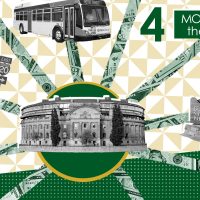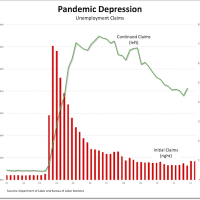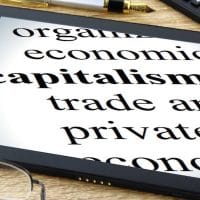-
Biden nominees call for tough stance on China during confirmation hearings
During Tuesday’s confirmation hearings before the Senate, nominees for positions in Joe Biden’s cabinet expressed their support for a tough stance on China.
-
Why are people going hungry in India despite a massive grain surplus?
The peasants gathered on the Delhi border understand all these issues much more clearly than either Modi or the intelligentsia advocating a shift away from food grains. Ironically, it is the latter group who are suggesting that the peasants are ignoramuses!
-
The Geo-politics of EU-China Investment deal
The recently announced EU-China principally agreed investment deal is a watershed moment, marking a first EU-China investment deal of its kind that would open the doors for the EU to make direct investment in China.
-
Money as a Constitutional Project with Christine Desan
In this episode we are joined by Christine Desan, Leo Goettlieb professor of law at Harvard Law School to discuss her excellent book, Making Money: Coin, Currency, and the Coming of Capitalism.
-
Airbnb’s A’s and B’s
This is most clearly shown in what is allowed by the powers that run the financial system.
-
Why is the Guardian promoting more Pentagon propaganda?
Recent reporting reinforces the false impression that the United States is threatened by Chinese and Russian expansionism.
-
In a pandemic, why are cities still making it hard for people to get utilities?
With the continuing pandemic–and expiring housing and unemployment benefits across the country–millions of people may have their utilities cut off soon.
-
Chart of the day
Both the number of initial unemployment claims for unemployment compensation and the number of continued claims for unemployment compensation are once again on the rise, signaling a worsening of the Pandemic Depression.
-
Canada is choosing corporate property rights over the health of billions
Unequal distribution means the poorest countries are getting trampled in the stampede for COVID-19 vaccines.
-
Does automation spell the end of capitalism?
Capitalism will not ‘automatically’ morph into some ‘postcapitalist’ or socialist system due to technology replacing the human workforce. As the MARX MEMORIAL LIBRARY explains, ending capitalism will require a conscious, collective action on the part of ‘the many’—the working class.
-
With rent freezes about to expire, Mnuchin lobbies for more Wall Street bailouts
As millions of Americans stand on the brink of economic annihilation, the money keeps flowing to Wall Street thanks to carefully contrived mechanisms to maintain a dying financial system afloat.
-
Eric Hobsbawm’s dialectical materialism in the postwar period 1946-56
Hobsbawm’s thinking was guided by dialectical materialism, which was a scientific outlook based on analysis. It always accounted for unpredictable human agency and, though economic factors played the principal role in the development of history, this study rejects the claim that Hobsbawm was a mechanical determinist.
-
Capitalism and inheritance
IT is often believed that the ability to pass on property to one’s progeny is an essential element of capitalism, without which the capitalists’ incentives will dry up and the system will lose its dynamism.
-
Utopian socialism
The third major influence on Marx’s critique of political economy (in addition to and combined with classical economics and Hegel’s philosophy) was utopian socialism.
-
Why the military establishment backed Biden
The U.S. military establishment will breathe a sigh of relief at Joe Biden’s victory in the presidential election. Nearly 800 former high-ranking military and security officials penned an open letter in support of the Democratic candidate during the campaign.
-
India’s move toward a de facto unitary state
India is being pushed toward a de facto unitary state, with states being kept totally out of the loop in decision-making, as seen in the new agricultural laws, goods and services tax compensation, Jammu and Kashmir bifurcation and new National Education Policy.
-
The best response is to communicate the Revolution
The new U.S. financed counter-revolution hopes to manipulate sensitive issues and create the conditions for a social confrontation, for conflict and destabilization of the country.
-
Billionaires and the Pandemic
WEALTH distribution data are notoriously difficult to interpret. This is because variations in stock prices affect wealth distribution, so that a stock market boom suddenly makes the rich appear much richer, while a stock market collapse makes wealth distribution less unequal overnight.
-
Ruthless criticism
But where did Marx’s critique of mainstream economics come from? It certainly did not emerge in one fell swoop, as a ready-made theory of capitalism. And it wasn’t produced in isolation, independently of the society within which it was first produced and then further elaborated.
-
Limits of mainstream economics today
Keynes’s criticisms of neoclassical economics set off a wide-ranging debate that came to define the terms of—and, ultimately, the limits of debate within—mainstream economics.




















